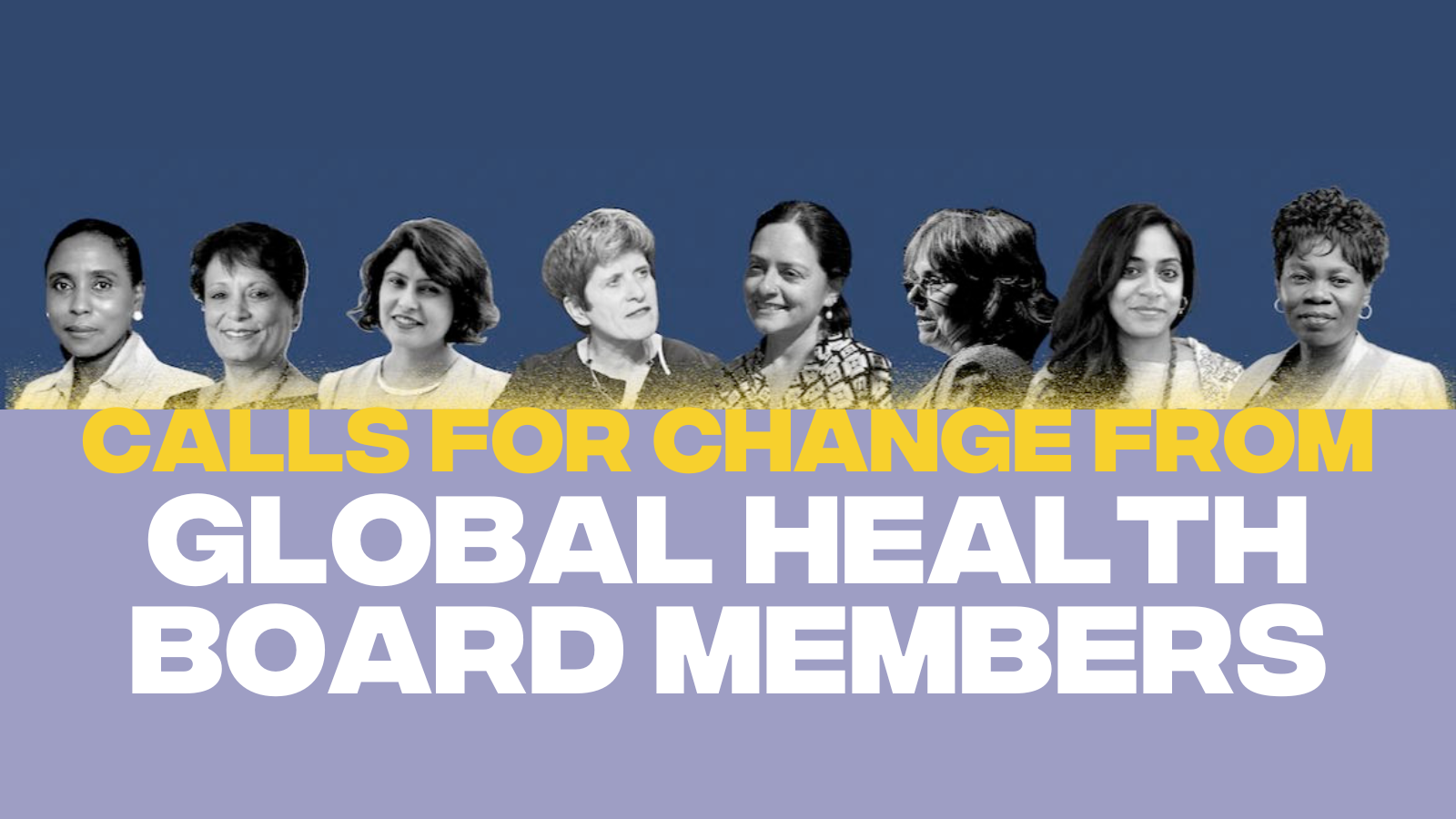
The 2022 Global Health 50/50 Report: Boards For All? takes an in-depth look at power and privilege by examining who governs global health. For the first time, the report assesses the demographics of every board member of the most influential organisations active in global health, which includes 1,946 individuals holding 2,014 board seats across 146 organisations.
The report finds that in the corridors of power and the rules determining who is given a platform to govern, considerations of gender and diversity are all too often lacking. Just 17 of the over 2,000 global health board seats are occupied by women nationals of low-income countries. Meanwhile, a quarter of board members are men from the United States. Despite these inequities, only 12% of boards in our sample have published affirmative measures to promote women’s participation and only 6% have published policies to address geographic imbalances.
To gain insight into the boardroom, GH5050 spoke to several board members from low- and middle-income countries and from representatives of organisations active in global health. As the many voices in the videos below attest, fostering diverse and inclusive governance spaces is possible through committed leadership, deliberate policy, and sustained action and accountability.
“The young people on our board are impatient with the self-satisfaction of the aged. If we appoint only CEOs to boards, we will replicate organisations as they are. It is a shocking assumption that the same thinking, skills and world views will transform this world. Youth is a competency, not just an identity, and boards without it are ill-suited for the challenges we face.”
Kate Gilmore
Chairperson of International Planned Parenthood Federation
“The few women leaders from lower-income countries who are on global health governing boards exude exemplary confidence and capabilities. Seeing them in action can be hugely inspirational for staff, setting off a virtuous cycle of women inspiring women. I have seen how women leaders sitting on these boards have the domino effect of dismantling gender stereotypes.”
Anuradha Gupta
Deputy Chief Executive Officer of Gavi, the Vaccine Alliance; Board member of Partnership for Maternal, Newborn and Child Health
“In tackling the issue of poor representation, a lot of focus is on the disadvantages and challenges that women experience due to their gender, and occasionally their intersectional position. But we also need to better understand the privileges amongst those that wield power and how they do so, the resources and capital they have access to. We then need to ask how those resources and spaces be democratised.”
Anuj Kapilashrami
Professor in Global Health Policy & Equity at University of Essex; Board of trustees for Health Poverty Action
“Board invitations usually only come once you assume leadership positions in your own organisation. But there are not enough senior women and the demand on their time is high - when you approach them, they think “Oh, I’m already on five boards, and I cannot take on any more.” So if we want more women board members, we need to support women throughout their careers so they can reach the top.”
Catherine Kyobutungi
Executive Director of the African Population and Health Research Center; Board member of Partnership for Maternal, Newborn and Child Health
“When organisations don’t embrace diversity, I say it’s their loss. If we are going to have people making decisions about issues in low- and middle-income countries, we must listen to the people who see the reality on the ground. Sometimes the things that matter are very basic. And we need to have that voice in board meetings.”
Nyovani Madise
Director of Development Policy and Head of the Malawi office of the African Institute for Development Policy; Board member of Population Council and Trustee of Liverpool School of Tropical Medicine
“I don’t think there’s a single point where boards become representative, inclusive, and so on. It’s a direction in which we have to travel. It means being open to unlearning, to discomfort, to being at the back, and, for people who are new on the block, claiming the room and claiming that space.”
Devaki Nambiar
Program Head of Health Systems and Equity at the George Institute for Global Health; Board member of Health Systems Global
“Organisations have the power to improve their board diversity. Be deliberate. Ask yourselves what is fair, what is just, how inclusive can you be. Otherwise, we keep running headlong without knowing what impact we're making, and what the people we work with want. We end up speaking at the people whose voices matter most.”
Seri Wendoh
International Planned Parenthood Federation (IPPF)

